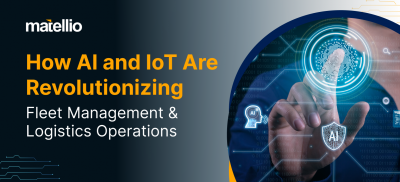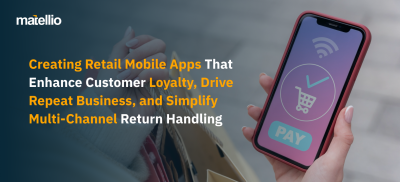
The healthcare industry has come a long way with investment in technology, from real-time diagnosis enabled by robust applications to round-the-clock health tracking with wearables. Medical practitioners are now able to track and transmit patients’ data beyond geographies and take immediate actions as and when needed. A drastic shift away from using technology to advanced specialty care and high-tech medicine delivery is clearly visible. Arguably, technology opens a host of new opportunities for the healthcare realm and is poised to influence comprehensive care delivery for the years to come.
If you are a business involved in the healthcare sector, it is recommended to keep an eye on the trends of the field. We have narrowed down your search for healthcare trends of 2022 in this blog. Let’s dig in.
Healthcare Technology Trend 1: Telemedicine

Telemedicine is arguably proving to be transformative in today’s healthcare arena. Care seekers no longer need to rely on in-person appointments to find a cure and rather simply reach for their smartphones for the same. Telemedicine has been improving the diagnosis and treatment by making it easier for patients to get access to specialists too. Healthcare applications have been one of the most prominent health tracking and maintenance sources, thanks to multiple data exchange and communication platforms. You can now get in touch with a doctor right from your home and seek a solution to your health-related problems. Moreover, doctors don’t need to limit their expertise to a specific area or timezone and rather expand them to fulfill their duty.
But that’s not it. Studies have also shown that hospitals have been able to reduce readmission rates by providing real-time monitoring of patients beyond the boundaries of hospitals. Remote monitoring also lets them provide better healthcare facilities as a part of post-discharge plans for patients.
Healthcare Technology Trend 2: The Internet of Medical Things (IoMT)

The internet of medical things or IoMT is a combination of multiple medical devices and applications spread across geographies and working seamlessly to establish a healthy ecosystem. The technology proves to be an amazing aid to reduce unnecessary hospital visits and the burden on healthcare systems by connecting patients to their medical experts and allowing the transfer of important medical data over a secure network.
IoMT doesn’t just benefit one section of the healthcare service, but both- patients as well as the healthcare service providers. Some of the most striking examples include more accurate diagnoses, more efficient delivery of healthcare services, and lesser costs.
What is truly exciting are the benefits IoMT offers doctors and, more importantly, their patients. Faster and more-accurate diagnoses, more-efficient delivery of healthcare services, and reduced costs are only a few of the ways medical IoT technology will benefit the sector. No wonder the IoMT market is expected to grow up to 135.87 billion USD by the year 2025.
Healthcare Technology Trend 3: Cloud Computing in Healthcare

Cloud computing is the new watchword in the healthcare realm. The adoption has been increasing at a terrific pace giving new dimensions to the patients’ expectations and how healthcare service providers match pace with the same. But that’s not it. Healthcare services are also relentlessly trying to address the need to build out, run and maintain infrastructure for record-keeping. And that makes cloud computing the best choice in terms of technology.
With cloud integration, patients and healthcare providers can get better access to records via cloud-based solutions, which makes the process time-saving and convenient. Additionally, it enables synchronous and asynchronous messaging systems that keep telemedicine paradigms running smoothly. Live video consultations are possible, and patients and doctors can interact without any risk to security. Cloud computing solutions also enable more flexibility and lower costs as well as portability.
Healthcare Technology Trend 4: AR/ VR/ MR in Healthcare

Augmented Reality and Virtual Reality have garnered huge popularity in the field of healthcare. From educating students about new procedures to planning them, AR and VR offer the most advanced healthcare solutions for chronic ailments.
AR systems and the healthcare mix offer doctors the most innovative solutions and options to provide the best treatments. By rendering 3D information in a real-time scenario, AR allows medical practitioners to stay grounded and calm in actual procedures while making entire data available on the cloud. Students can use overlays to access information in an interface where they can quickly explore educational material and more. Doctors can also compare the idea data to the real world and better plan the treatments. Having said that, AR is arguably going to prove transformative for the healthcare industry.
Healthcare Technology Trend 5: Artificial Intelligence In Healthcare

AI and healthcare combination has been on top of the buzzwords for a long time now. Developing Artificial Intelligence machines that can process information and provide decision-making data in the same way as a human does has given rise to an innovative technology solution. AI applications can help in improving the speed and accuracy of the diagnosis process. Analytics can also help in identifying developing concerns that will allow practitioners to look at the possible approaches for early treatment.
Machine learning algorithms can also be utilized to explore chemical and biological interactions during the drug discovery process, bringing drugs faster to market for consumption.
One of the instances shows that the FDA has recently approved the first AI-based diagnostic device, a system that scans for eye disease by examining photos of the retina. High-quality images are uploaded, and the algorithm then proceeds to check for possible indications of diabetic retinopathy. The software correctly identified the disorder in 87% of cases, and it correctly identified individuals without the disease 90% of the time.
The potential of AI is immense in the healthcare industry, especially with predictive simulation in healthcare. There is a need to achieve high-end healthcare services through AI-integrated systems.
Healthcare Technology Trend 6: Chatbots

Dealing with routine queries using an AI-enabled system can help organizations realize cost-saving. You can utilize smart bots in a digital assistant role that allows practitioners to keep better track of contacts, offer appointments more readily, and easily make changes.
A chatbot can be utilized to provide friendly reminders. The assistant can even warn about potential drug interactions by connecting with other technologies, such as analytics and AI.
A popular implementation can be seen with a project at UCLA that has combined chatbot technologies with AI systems to create a Virtual Interventional Radiologist (VIR). It makes evidence-based responses to FAQs quickly available to physicians by implementing IBM Watson’s cognitive technologies and Natural Language processing methods. This allows the questions to be read and answered in an intuitive manner, making the whole process simpler, faster, and more useful for doctors.
Chatbots are already revolutionizing the world, and it has been expected that they will become a big part of the healthcare industry too. RPA in the healthcare industry is also playing a crucial role in automating processes, enhancing efficiency, and ensuring compliance. An automated system will be seen as a replacement for the expert opinion, and it will be subject to the same rules in compliance with HIPAA and GDPR to feature highly in healthcare-related solutions.
Healthcare Technology Trend 7: Data Science and Predictive Analysis

Improvements in Data Science and Predictive Analysis have made it possible for practitioners to look for deeper insights. Through deeper insights, you can work on actionable data. Data can be analyzed and scanned to improve efficiency within healthcare organizations. Custom healthcare software development services can help integrate advanced analytics, enabling organizations to achieve synergies. With greater inflows of data from IoMT devices, data scientists can construct more detailed models.
Also Read: Discover how AI in Endocrinology can revolutionize healthcare by enabling predictive insights, personalized treatments, and improved patient outcomes.
Healthcare Technology Trend 8: Blockchain

A great way to improve availability and integrity is through distributing transaction records via a peer-to-peer system with a shared digital ledger. Interoperability is expected to move drastically with the arrival of blockchain in healthcare. For example, Issues pertaining to drug supply and counterfeiting can be addressed by seeing that all transactions are logged onto a blockchain-based system. At the organizational level, this can lead to significant savings.
Are You Ready for the Healthcare Revolution in 2022 and Beyond?
Various technology paradigms have drastically revolutionized the healthcare industry. The outbreak for healthcare solutions that have been optimized and tailored for a specific set of the target audience is on a constant rise. If you are a healthcare service provider, it’s high time you upgrade your offerings and gear up for the technological era to come.
If you are looking for an efficient healthcare software solution to enhance your business, Matellio has the perfect solution for you. We follow agile development methodologies to bring out the best performance in your healthcare mobile app. With a dedicated team of developers and experts, we create solutions that fit like a glove with your business goals. Discuss your idea with our experts over a 30-min consultation call!



